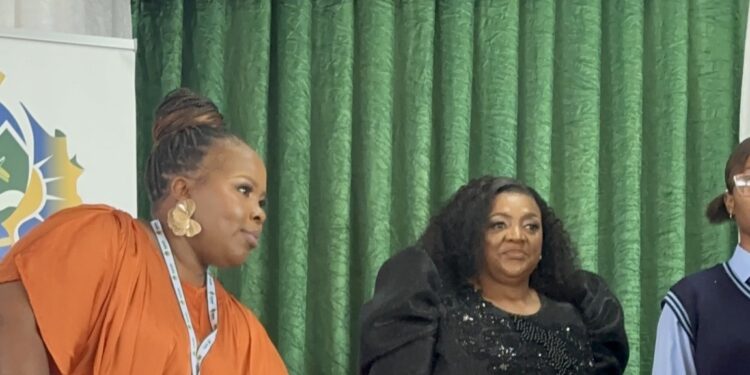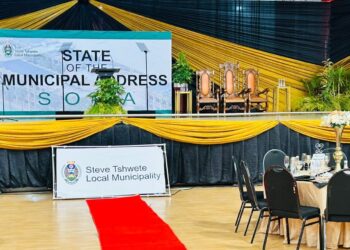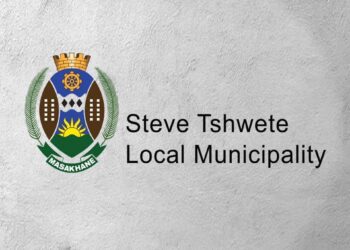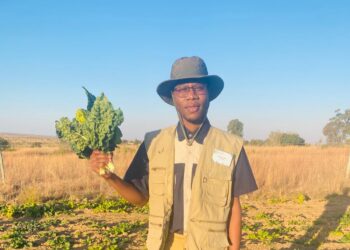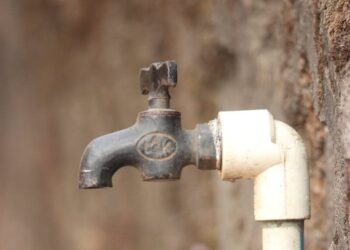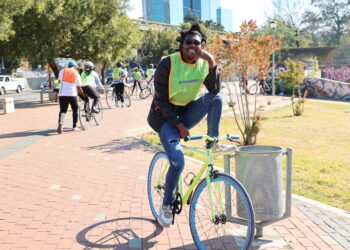LIBANGENI
Executive Mayor Nomsa Mtsweni delivered the 2025 State of the Municipality Address (SoMA) of Dr JS Moroka Local Municipality at the Libangeni Community Hall on Thursday, 28 August 2025, placing inclusive development, service delivery, and community empowerment at the centre of the municipality’s priorities.
Speaking under the theme “Accelerating Inclusive Development and Service Delivery for All,” Mayor Mtsweni reflected on the progress made, the challenges still facing residents, and future plans for building a municipality that is safe, inclusive, and prosperous for all. “Our vision is clear: a healthy, safe, and empowered community where no one is left behind,” she said.
The Mayor emphasised that good governance is the foundation of service delivery, noting that public participation meetings, imbizos, and ward committee forums have allowed residents’ voices to guide municipal decisions. “Good governance is more than a phrase. It is the lifeline of any municipality that seeks to serve its people with integrity and effectiveness,” she said.
Water, Sanitation, and Infrastructure
Despite financial pressures, significant progress has been made in basic services. In water infrastructure, more than R45 million has been budgeted to replace asbestos bulk water pipelines. This includes R21.4 million for the line from the Water Treatment Plant to the Kuillen Reservoir in Ward 8 and R24.2 million for the line leading to the Bloedfontein Reservoir in Wards 8 and 20. Borehole rehabilitation and drilling projects are also underway in Nokaneng, Mmametlhake, and Senotlelo to stabilise water supply.
Sanitation projects include the construction of the Libangeni sewer system in Wards 16 and 17 at a cost of R17.6 million, Ga-Phaahla sewer reticulation phases 2 and 3 in Ward 1 worth R21 million, and Thabana sewer outfall and precast toilets in Ward 7, a R20.2 million project including household connections. Unsafe pit latrines in Ga-Phaahla are being replaced with modern sewer systems and toilets, improving health and safety.
Electricity provision has also improved, with over 270 households connected and 83% of high mast lights repaired. In Phake (Phase 2), 438 stands are being electrified to provide safe and reliable energy.
Roads, Transport, and Housing
The municipality has invested in roads and transport, allocating R12.1 million to the Radijoko bus and taxi route in Ward 22, R11.7 million to the Katjibane route in Ward 27, and R11 million to the Makopanong route in Ward 2 during the 2024/2025 financial year. New taxi and bus routes in Mmametlhake and Katjibane (Phase 4) are underway to improve mobility.
Housing developments include the formalisation of townships such as Maganagobuswa (Ward 2) and Ga-Phaahla (Ward 1), enabling residents to receive legal title deeds for their land.
Community Facilities and Social Development
Mayor Mtsweni highlighted the importance of community facilities and social programmes. Nokaneng Stadium (Phase 1) is being upgraded to become a hub for recreation, youth development, and sports excellence. Social support initiatives include donations of school uniforms, food parcels, and blankets to vulnerable households, assisted by partners like SASSA and Vergenoeg Mine.
Traditional Leaders and Governance
Mayor Mtsweni highlighted the municipality’s work with traditional leaders to ensure proper demarcation and functional alignment. “Through the MoA, we reaffirm our commitment to good governance, respect for customs, and inclusive participation,” she said. Engagements with Kings and senior Traditional Leaders, together with COGHSTA, are in the final stages of aligning each leader with their demarcation areas and functions as gazetted. New offices for the Bakgatla Ba Mmakau and Ndzundza Mabusa Traditional Councils were officially opened, providing dignified spaces for traditional governance.
Healthcare
Healthcare remains a priority. Mmametlhake Hospital now boasts 194 beds, modernised wards, a laboratory, EMS building, and accommodation for medical staff. The Siyabuswa Health Centre is set for expansion to be a mini-hospital, the project was officially launched by MEC for Health Sesekani Manzini on August 26, 2025. Mayor Mtsweni highlighted government’s commitment to accessible healthcare, saying, “The expansion of this facility will bring, increased capacity, modernised infrastructure ,improved patient experience and job creation opportunities with 40% dedicated to women owned businesses.”
She also stressed combating HIV/AIDS, TB, gender-based violence, and teenage pregnancy. “Teenage pregnancy is contributing to school dropouts and limiting the potential of our girl children, while gender-based violence is tearing families apart,” she said.
Education and Youth Empowerment
Mayor Mtsweni celebrated academic achievements, including Mokebe Secondary School’s 100% matric pass rate and Languita Mokatse’s second-place national ranking among quintile one schools. The Mayoral Bursary Fund supports learners from disadvantaged backgrounds, though only one learner qualified this year, prompting an appeal for more youth participation.
Youth programmes include pregnancy dialogues, job workshops, business training, and a new Artificial Intelligence skills programme aimed at preparing young people for the digital future.
Economic Development and Tuckshop Empowerment
Tourism and local economic development were also on the spotlight. Mayor Mtsweni announced that R1 million has been allocated to relaunch the Cultural and Business Development Event to promote local SMMEs and market the municipality, while an additional R1 million will go towards supporting tourism product owners. “If you look at Dr JS Moroka, we have everything that says tourists must come to our area, but if we are not well co-ordinated, people will pass us. If you remember, there was a tourism route coming from OR Tambo Airport to Kghodwana, down to our areas, Erholweni and the Dr Esther Mahlangu home. We want that back, and not only for tourists to buy from us but also to know our culture and learn from our good practices,” Mtsweni said.
She added that the municipality intends to leverage Ndebele art and culture, which are already globally recognised, as a way to attract more visitors.
However, alongside these positive developments, Mayor Mtsweni addressed pressing concerns around the formal registration of tuckshops. “We have received 495 applications, and unfortunately the municipality has learned that 90% of tuckshops are owned by local people but rented out to foreign nationals,” she revealed.
In an interview with the Highveld Chronicle, Mtsweni explained that steps were being taken to empower local owners to reclaim control of their businesses. “We are engaging the local businesses through their leadership. On Monday, 01 September, we have our preparatory meeting where we will pave the way for a meeting with all the business owners. It is important for them to understand that for them to be successful and access government support, they must own and run their businesses. Funding is there to assist locals,” she said.
Her remarks were echoed by Joe Monyakeni, Chairperson of the Dr JS Moroka Liquor Association, which also represents tuckshop businesses. “About 95% of spaza shop owners rent their shops to foreign nationals. We will call these owners and explain to them how they can get funding that will benefit them, especially the elderly. On Monday, 01 September, we will engage with the Mayor, then we will set a specific date for them. Our goal is to empower all South African tuckshop owners,” he said.
Financial Management
Mayor Mtsweni acknowledged the municipality’s financial challenges, noting a “qualified audit” from the Auditor-General due to issues like irregular spending and weak revenue collection. She reassured residents that corrective measures, including a revenue strategy, non-essential spending cuts, and collaboration with Provincial Treasury, are underway. “A qualified audit outcome is not a destination – it is a checkpoint,” she said.
Closing her address, Mayor Mtsweni called for unity and collective action. “The state of our municipality is not defined by our challenges but by the spirit with which we meet them. The greatness of a municipality is not measured by the wealth of a few but by the well-being of its many. Together, let us write a new chapter of prosperity and dignity for our municipality.”











